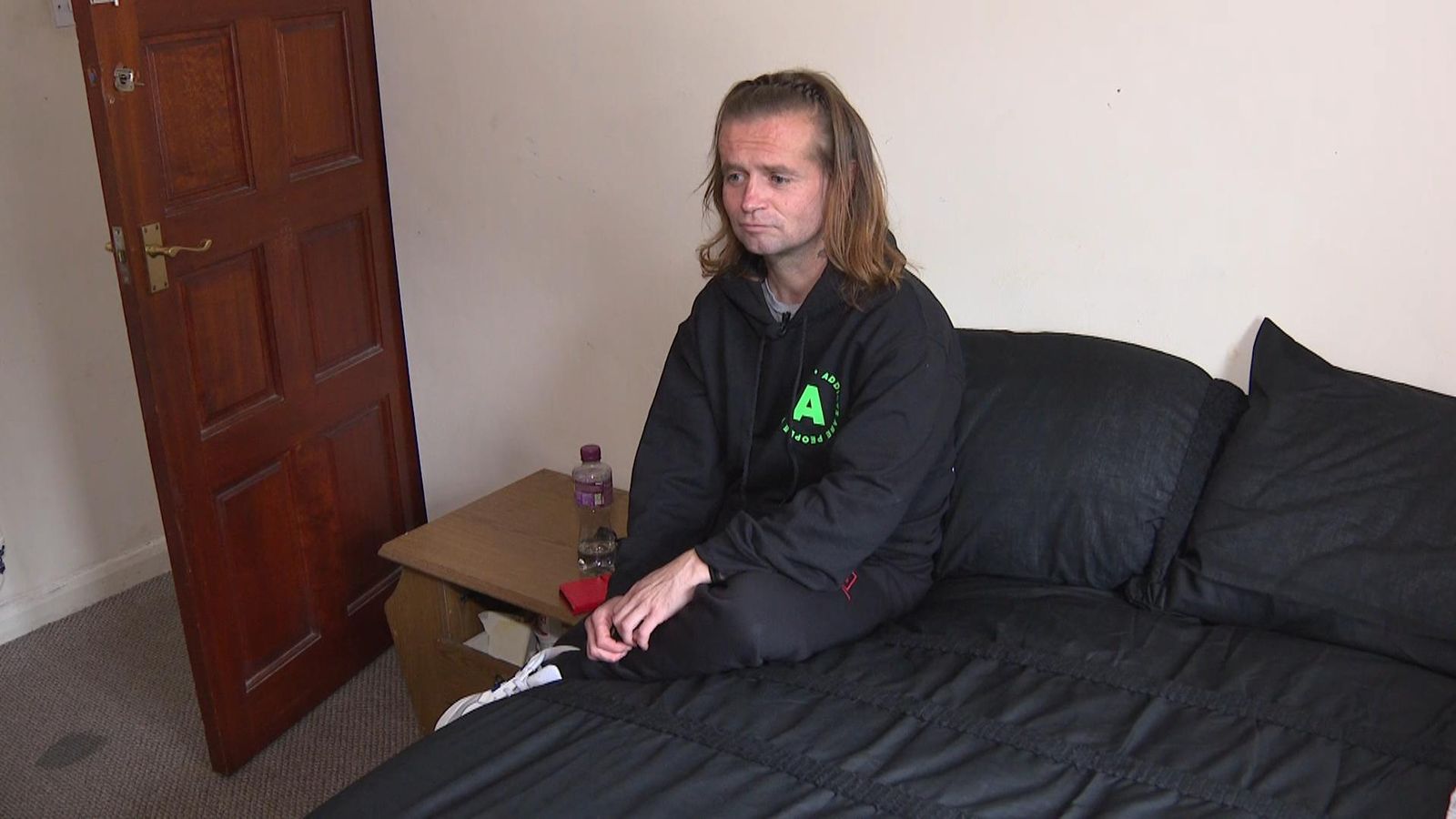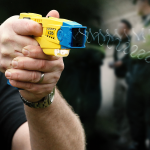Last week, Sky News revealed that councils are spending half of what they did on addiction treatment services 10 years ago, and the number of drug-related deaths has doubled.
We told the story of Craig Murphy, an addict who had been trying to get into rehab for a decade. After our reporting, a rehabilitation charity offered Craig a place in Oxford. We joined him as he moved in to his first safe accommodation in years.
Craig Murphy’s mouth is wide open. Inside is a swab scraping along his cheek. Craig, a crack and alcohol addict, is being tested ahead of admission to rehab.
The swab test will show up any opiates, amphetamine, benzo, cocaine, ketamine and other commonly abused drugs. There is also a urine test for alcohol.
Craig looks a little nervous. Or perhaps it’s the exhausting journey he has to make to get him to the ADAPT Charity in Oxford from his home in Burnley. Or maybe it is neither and this is what a man with a 20-year addiction looks like.
The urine test comes back negative. It confirms what Craig says: that he has been sober for nearly three weeks now.
But the drugs test returns positive. Craig has cannabis in his system.
“You had cannabis yesterday?” I ask. “But you knew that was going to come up in the test?”
Craig looks apologetic. “I made a stupid mistake by smoking some,” he says.
“It’s hard to say no. It was there and I took it. But I’m here now and I know I’m not going to be touching anything.”
He had better not if he wants to keep his place on rehab.
There’s a growing waiting list and the charity has a zero tolerance policy towards drugs and alcohol. From now on, Craig will be randomly tested once a week.
Craig has been searching for a place on a residential rehab for nearly 10 years. Council funding to addiction recovery services has suffered drastic cuts at the same time demand for places and deaths from addiction are going up.
He was offered a six-month placement with ADAPT in Oxford after his struggle was reported on Sky News last Friday.
‘I was dead for a couple of minutes’
Craig will be sharing a house with three other recovering addicts. He has already formed a bond with one of them, Dave New.
He was exposed to heroin as a 16-year-old in care. His mother, a single parent, died when he just 10-years-old. He describes an early childhood moving from home to home in run down coastal towns across southeast England.
The heroin was supplied by a dealer who lived in the same hostel. It was the start of a traumatic battling addiction with almost every drug.
“Two weeks before I came up here, I overdosed and ‘died’,” Dave says.
“I ended up injecting heroin mixed with fentanyl and I overdosed. I was dead for a couple of minutes. When I woke up and looked in the mirror my face was blue. My lips were purple.
“I’ve been here 20 days today. I feel great and it’s all because we’re in safe housing, dry housing, where we’re drug tested regularly.”
Dave is 43 years old now. And this is the first time he has been clean for this long.
Drug free accommodation crucial for recovery
And it is why the charity places so much emphasis on providing safe, drug-free accommodation. It is crucial for any chance of recovery, the charity’s CEO Eddie Cobb tells me.
“Over 80% of our clients have experienced homelessness, being put in sheltered accommodation, where there are other addicts using,” she says. “So there’s just no chance, you know, when you’re around when you want to get clean, and you’re surrounded by other people that are using, it’s impossible for them to get clean.”
Craig is confident that he can stay sober this time. He has just been given the keys to his new home.
As we sit on the bed in room number 4, he takes out his phone and shows me photographs of the other hostels where he has lived.
The pictures show seeping sewage, mouldy bathrooms and boarded up toilets. Depressing pictures of neglect and disrepair. Just like the addiction recovery system so many addicts describe.
But Craig’s challenge was not the dilapidated buildings – it was the addicts still taking drugs and alcohol that made his life hell.
“It just feels like I’ve been given something I’ve never been given before,” he says. “And I’m going to take it. And I’m going to use it.”
Craig knows he’s been given a chance thousands of addicts never get. He also knows, it could be his last.






















